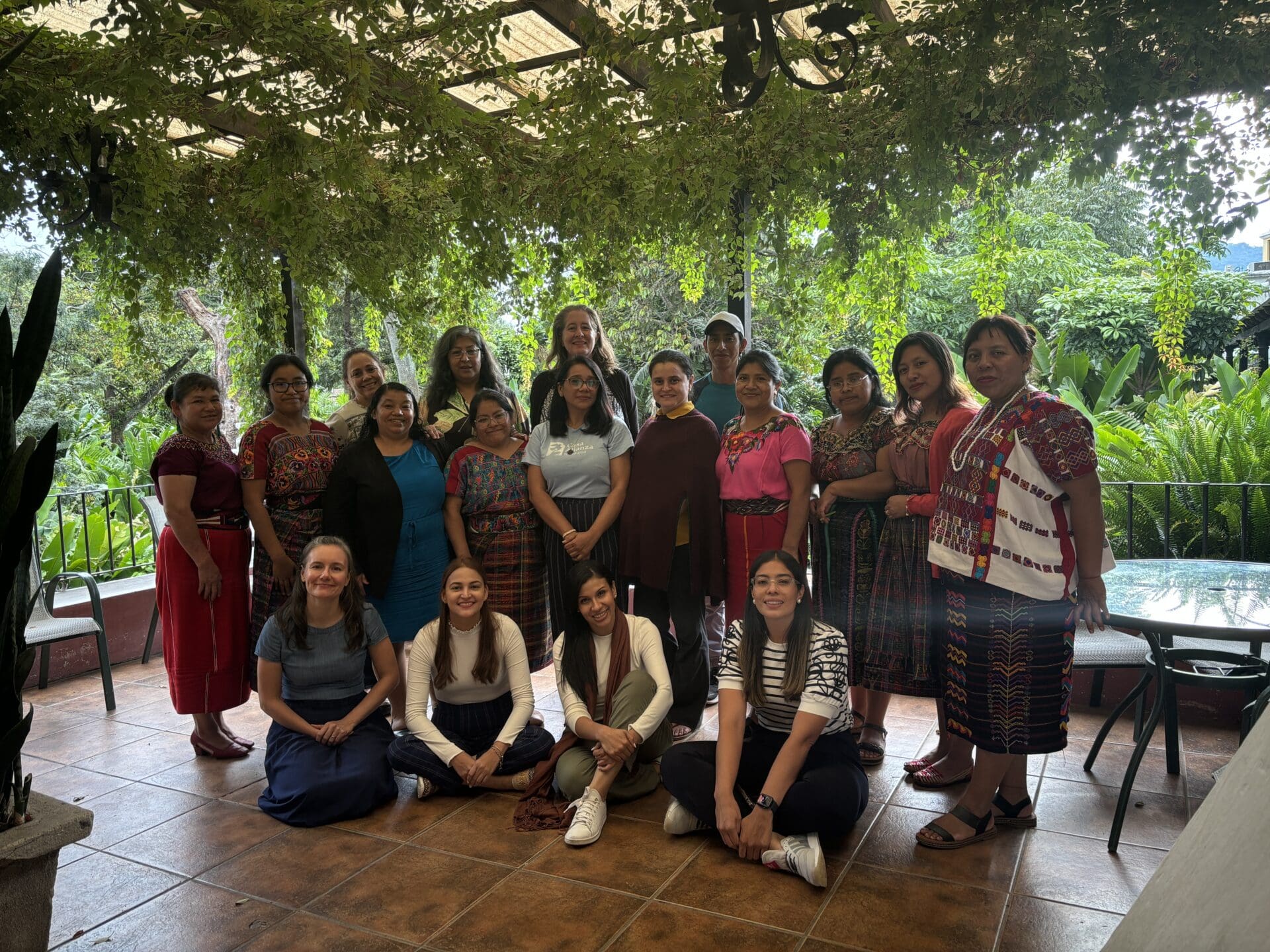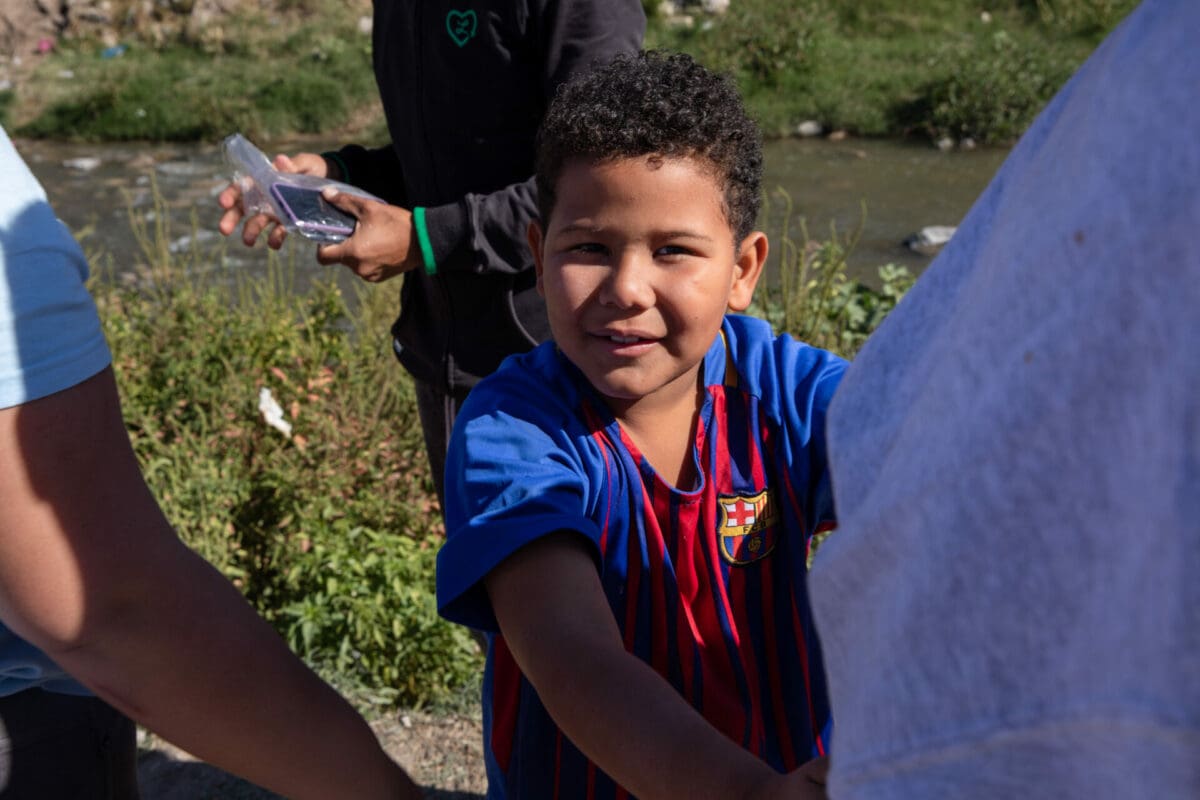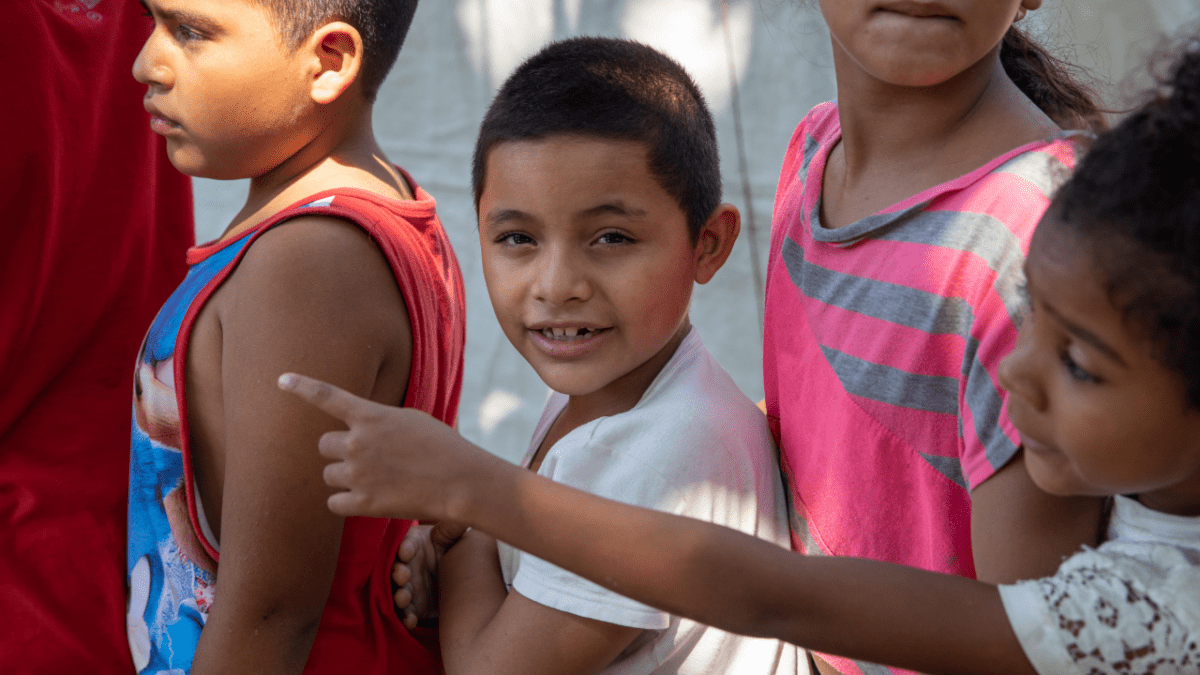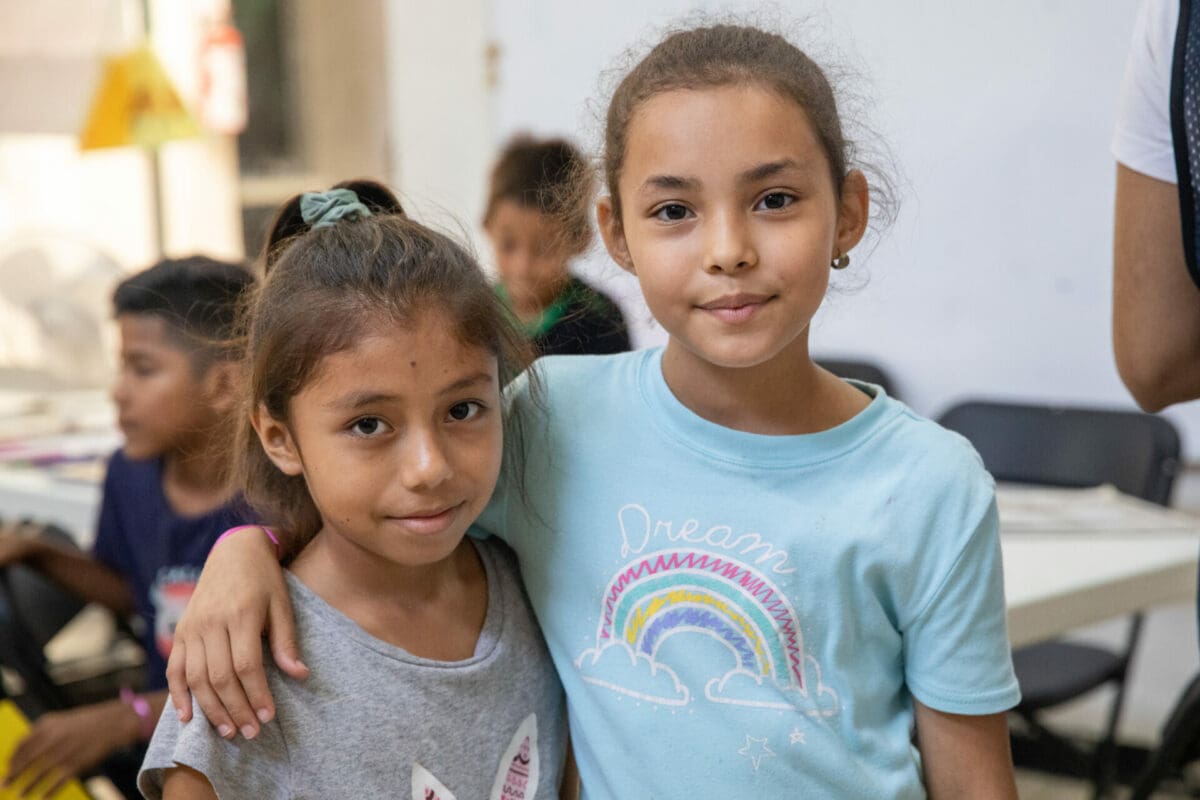 For the first time, KIND brought our partners in Guatemala and Honduras together in-person for our annual partner meeting in Antigua, Guatemala. Fourteen people from our four partner organizations—Asociación Pop N’oj, ECAP (Equipo de Estudios Comunitarios y Acción Psicosocial), Asociación Colectivo Vida Digna, Casa Alianza Hondras, and CASM (Comite de Accion Social Menonita) and five KIND staff members attended the three-day meeting in September. It was a huge success of networking and idea exchange.
For the first time, KIND brought our partners in Guatemala and Honduras together in-person for our annual partner meeting in Antigua, Guatemala. Fourteen people from our four partner organizations—Asociación Pop N’oj, ECAP (Equipo de Estudios Comunitarios y Acción Psicosocial), Asociación Colectivo Vida Digna, Casa Alianza Hondras, and CASM (Comite de Accion Social Menonita) and five KIND staff members attended the three-day meeting in September. It was a huge success of networking and idea exchange.
Gender and Migration Initiative Sessions
Rachel Dotson, Director of KIND’s Gender and Migration Initiative, facilitated a series of conversations on a new Gender & Migration curriculum that KIND and our partners co-developed. The curriculum includes activities that equip adolescents, parents and caregivers, and teachers the knowledge and tools to prevent gender-based violence and promote gender equality, both at the community level and in migration. The curriculum will be used by KIND’s partners in Central America and will allow us to develop a more consistent approach to our gender and migration work while also maintaining the flexibility to adapt programming to local context and needs.
“We received a lot of feedback from partners on the curriculum in writing and on calls as we were developing it,” Rachel explained. “The meeting was a great opportunity to discuss how we can make the curriculum more useful and relevant. We are now well positioned to begin implementing this new work in a way that increases the coherence and consistency of our program and leaves lots of room for flexibility for the diverse local contexts of the different organizations.”
Participants discussed monitoring and evaluation tools, strategies for addressing sensitive topics such as contraception, nonviolent parenting, and gender and sexuality, as well as how to adapt the new curriculum to the local context. Each organization selected an activity from the curriculum to practice with the group, adapting it to the context in which they work, taking the concepts and making them their own. For example, KIND’s Guatemalan partner organizations that work with indigenous Maya communities incorporated rituals focused on the day in the Maya calendar and discussed the history and meaning of migration within Maya communities.
KIND’s Reintegration Partners Peer Learning
Partners who work in reintegration participated in a peer learning exchange and shared stories and ideas about their experiences. In one session, they went through the life cycle of a case step by step to see how the different organizations approach certain issues. Attendees shared tips and best practices, for example, how they conduct their home visits to children and families and care for themselves while doing such demanding work. Partners started a group chat for advice and resource sharing and plan to create a shared online platform to exchange materials.
KIND’s Director of Reintegration Amy Schaltegger Escoto said, “It was great watching partners build relationships with each other and share resources. Reintegration is starting to receive more attention. Our partners are leaders in the field of reintegration; they are the people who have been doing this longer than anybody. It was invaluable for them to have the chance to come together and learn from each other, especially across countries, because that also brings a more regional approach to their work.”
Partners also participated in joint learning and peer exchange sessions. In a session on sexual and gender diversity, participants started with a review of basic concepts such as gender, sex, gender identity, sexual orientation, and gender expression, and then split into small groups where they reflected on their own experience and learning processes related to these topics. It was clear that partners’ comfort with these concepts has increased since a training held on this topic at a partner meeting several years ago. They discussed the messages people receive about gender and sexuality from a young age, the challenges they face in addressing these topics in the communities where they work, and how they can be allies in personal and professional spaces.
Recognizing the advances partners have made through their work was an important part of the gathering. During the session Stories of Change, participants identified the impact of their work at multiple levels: personal/individual, organizational, and societal. It was a valuable opportunity for our partners to reflect on the impact their programming has made in the lives of the children, families, and communities they work with.
KIND is grateful to our partners and proud to support their changemaking.



